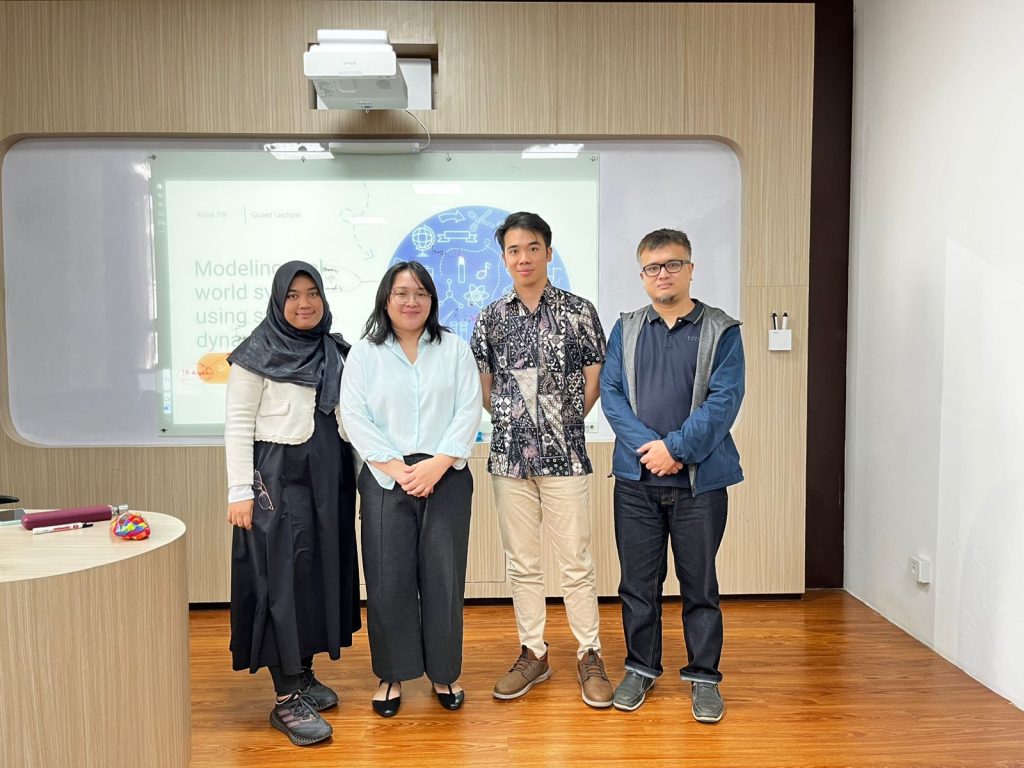Master of Science in Management (MSM) students from SBM ITB had a valuable opportunity to learn directly from Dr. Tutik Inayati, a lecturer at the Universitas Pendidikan Indonesia. On April 23, 2025, Dr. Tutik delivered a guest lecture on Simulation Modeling, where she guided students in exploring the concepts of systems thinking and dynamics. These two critical approaches are essential for analyzing and modeling complex systems.
According to Tutik, systems thinking helps us elaborate and articulate mental models—our way of seeing the world—and understand the impact of social and organizational structures. This approach encourages us to expand our mindset by explicitly considering feedback in the system.
Through simulation, mental models and organizational structures can be tested and improved, aiming to develop shared mental models and create more effective organizations. However, the main purpose of simulation is not to find absolute truth, but rather to help improve our mental models and identify policies with high leverage. This simulation allows us to anticipate the impact of decisions in a complex system.
In modeling, system dynamics operates at a higher level of abstraction than other methods, such as agent-based modeling. While agent-based modeling focuses on the behavior of individual agents within a system, system dynamics takes an aggregate perspective, examining relationships between variables at a broader scale.
However, limited data is a significant challenge in building system models in Indonesia. Data is an important element in building a valid model.
Difficulty in obtaining quality data often calls into question the credibility of a model. Therefore, the ability to collect, process, and utilize data is a crucial skill that must continue to be developed by prospective professionals in this field.
By understanding and applying the concepts of systems thinking and dynamics, students can be better prepared to face challenges in modeling complex systems and contribute to developing more effective and sustainable policies in the future.






